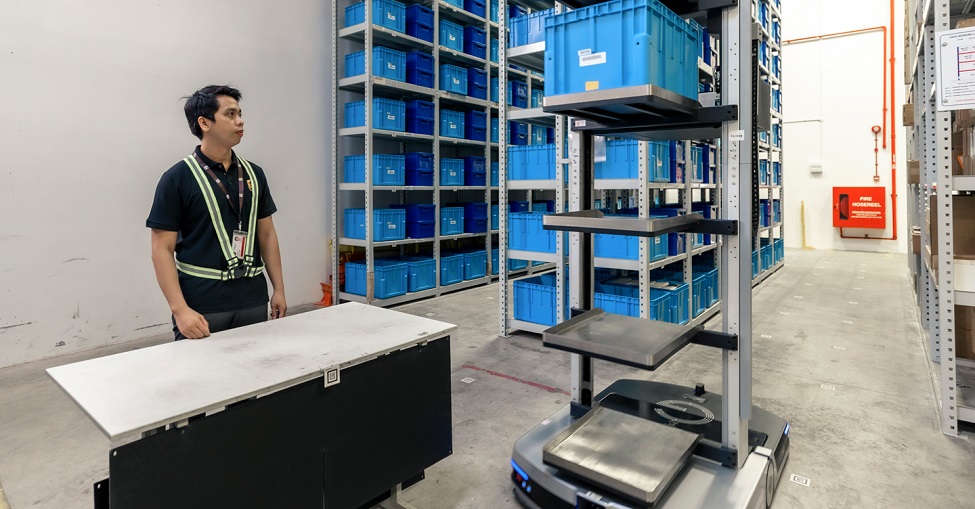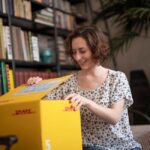
UPS: bring next-generation technologies and solutions to life

Supply Chain Solutions (UPS SCS) has officially opened its first innovation centre globally, connecting businesses in Asia with emerging technologies in logistics.
Located in Singapore, the UPS SCS Asia Pacific Innovation Centre will see UPS collaborating with strategic partners to incubate, test, and deploy next-generation technology to help businesses accelerate their digitalization journey in a transforming world.
The centre was officially opened by UPS executives Philippe Gilbert, President, UPS SCS and Sebastian Chan, President, UPS SCS in Asia Pacific.
Technology as an enabler for supply chain resilience
Digital transformation is the main disruptor in the logistics industry and will account for $1.72T in investments allocated to logistics by 2025, according to data by the World Economic Forum[1].
Even prior to the ongoing supply chain crunch, UPS has invested US$1 billion a year on technology and innovation, from augmented reality to autonomous robots and drones. This is especially relevant for the Asia Pacific region, where companies are increasing investments in warehouse automation technologies to enhance productivity and competitiveness.
“The Asia Pacific Innovation Centre is our dedicated platform to bring next-generation technologies and solutions to life collaboratively with our customers. Nearly two years of pandemic-related disruptions have led to extensive shifts in the way companies and consumers source and receive goods, as well as sped up long-anticipated trends, such as the adoption of e-commerce and at-home consumption,” said Gilbert.
“UPS’s spirit of being bold and unstoppable guides our focus on innovative and customer-first solutions for supply chain resilience. The Asia Pacific Innovation Centre represents our commitment to accelerate the application of emerging digital technologies that reimagine and redefine a new normal for our customers in Asia and across the global supply chain.”
A launchpad for supply chains of the future
The Asia Pacific Innovation Centre consists of specialized zones that include a mock-up of a warehouse for real-time demonstrations of the latest technology, as well as dedicated areas in a real warehouse for hands-on pilot collaborations with customers.
UPS envisions the innovation centre to be a testbed to explore and implement new technologies that have yet to be deployed on a large scale. UPS is already in close collaboration with customers and leading technology partners to converge innovations such as autonomous mobile robots (AMR), radio-frequency identification (RFID), and drones. These technologies will narrow efficiency gaps in supply chains, and streamline inbound and outbound logistics operations, order fulfilment, and inventory checks.
Sebastian Chan said, “In a business as complex as supply chain management, collaboration is key. Working with our industry partners such as Geek+, we continue to bring forth innovations that help businesses of all sizes apply value-adding digital solutions at any stage of their growth.”
UPS is the first to deploy the Geek+ RoboShuttle® RS-5 tote-picking robot in Singapore. It features extended-depth bin-to-person picking capability which saves close to 50% of warehouse space and uses artificial intelligence (AI) algorithms for order analysis and robot scheduling, thus increasing overall productivity, accuracy, and warehouse density.
“The compatibility and modular nature of such AMR and RFID technologies means businesses from across the region can collaborate with UPS and our partners to explore countless ways to automate and optimize their supply chains according to their unique needs,” added Chan.
These technologies also complement the UPS Supply Chain Symphony™ portal, giving customers access to a comprehensive digital ecosystem that provides near real-time end-to-end visibility of supply chain performance.
Plans for the Asia Pacific Innovation Centre include collaborating with academia for in-depth supply chain research technology, sharing of industry best practices, and expansion of UPS’s innovation centre to other parts of the world.










